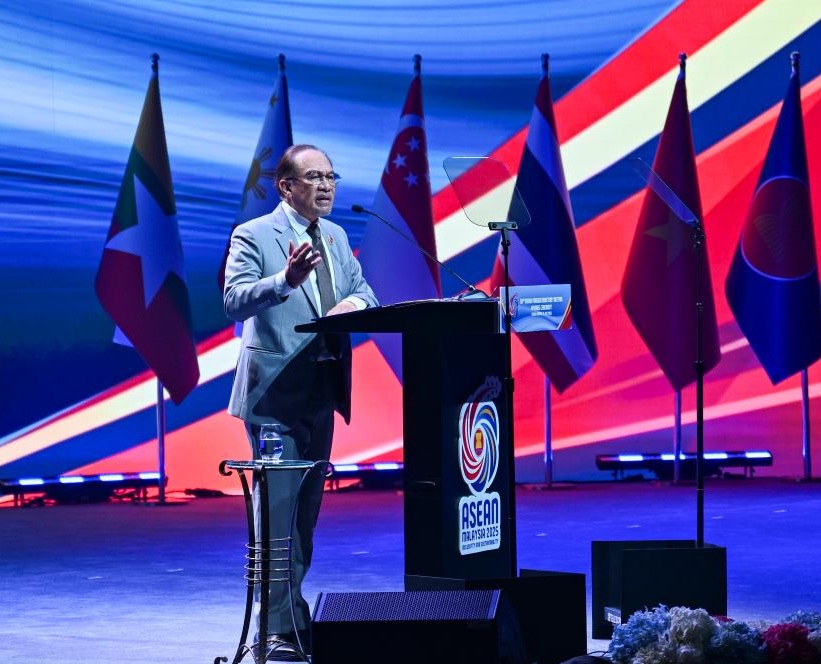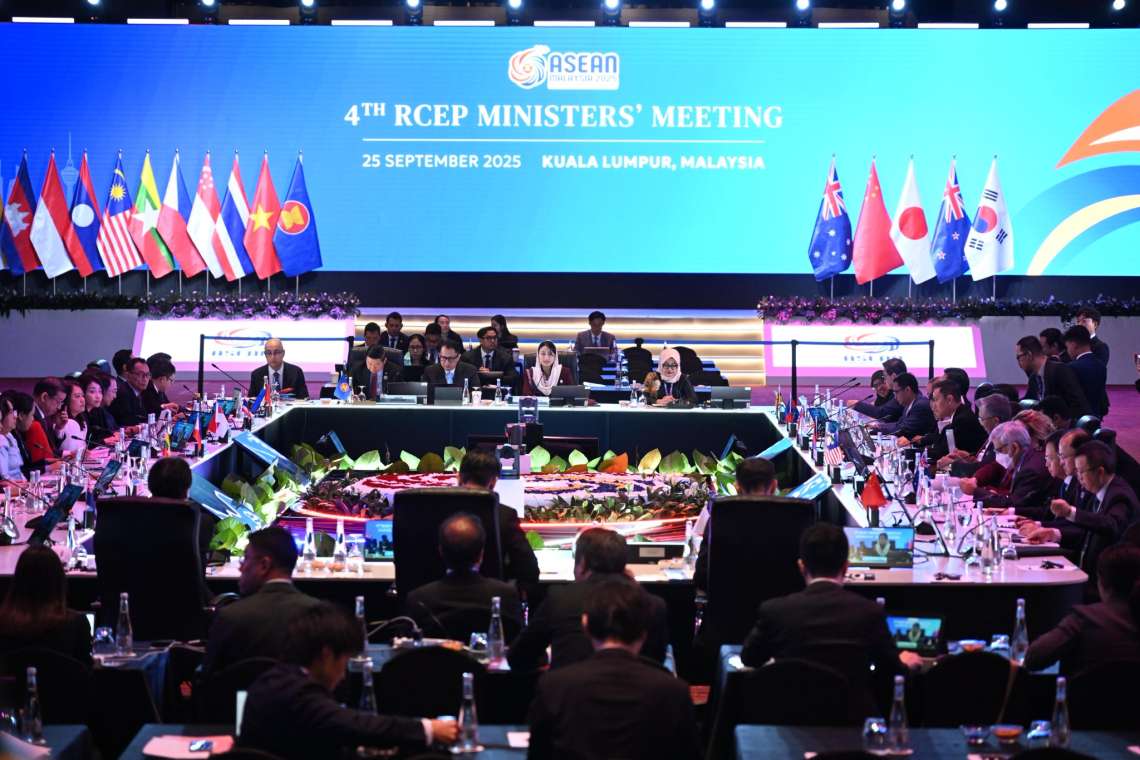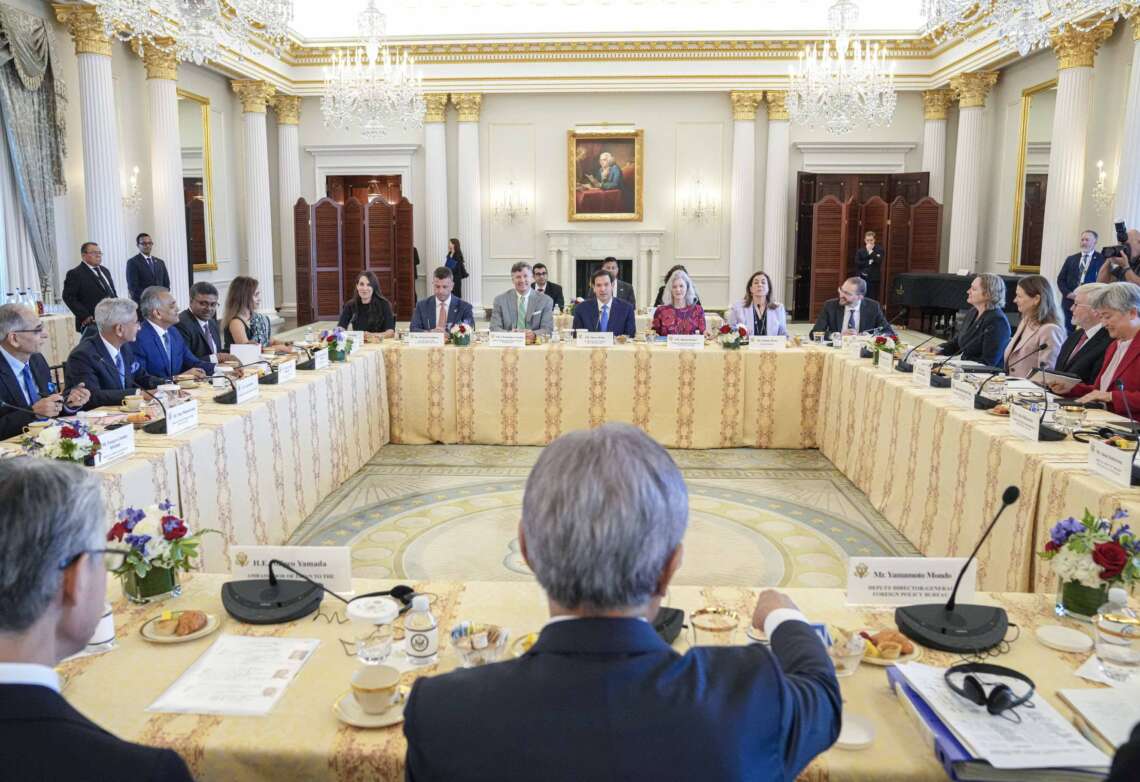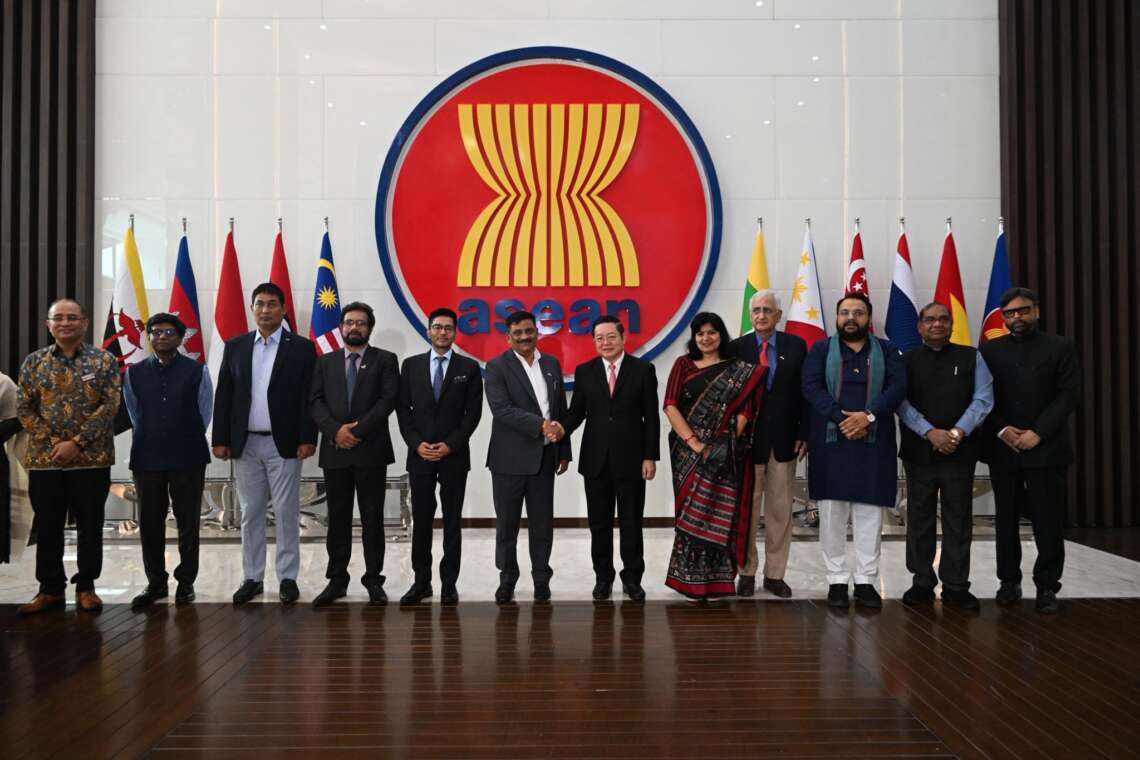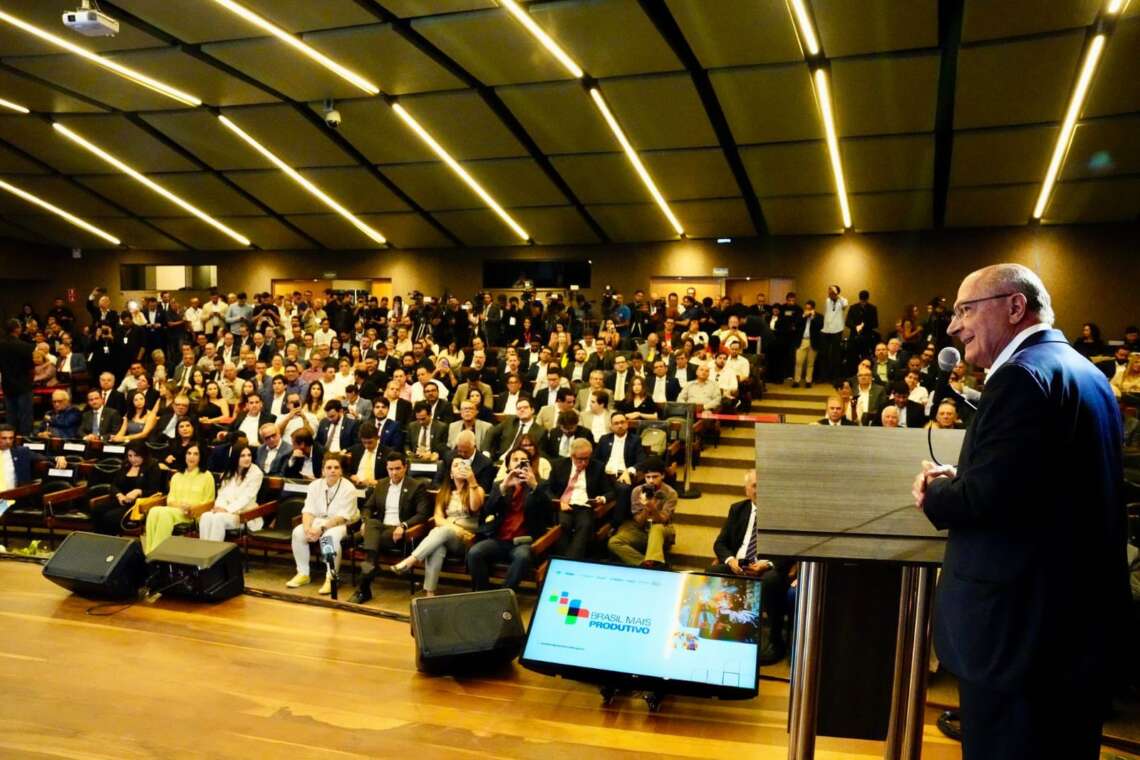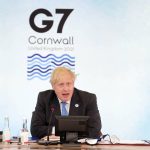Malaysian Foreign Minister Mohamad Hasan urged ASEAN to uphold its unity and strategic resolve amid intensifying geopolitical tensions and mounting external pressures…reports Asian Lite News
Consensus and inclusivity will remain the cornerstones of ASEAN’s approach as it deepens engagement with external partners and opens its doors to new members, Malaysian Foreign Minister Mohamad Hasan said in Kuala Lumpur.
He also urged ASEAN to uphold its unity and strategic resolve amid intensifying geopolitical tensions and mounting external pressures, the country’s Foreign Ministry said in a statement on Thursday, following the Plenary Session of the 58th ASEAN Foreign Ministers’ Meeting (AMM).
The statement said that during the meeting, ASEAN foreign ministers welcomed the adoption of the Guidelines to Facilitate Timor-Leste’s Accession to ASEAN Legal Instruments, and urged member states to complete the necessary procedural steps ahead of the 47th ASEAN Summit.

The meeting also reviewed matters related to the Treaty of Amity and Cooperation in Southeast Asia (TAC) and will be welcoming Algeria and Uruguay’s signing ceremony of the Instrument of Accession to the TAC later, Xinhua news agency reported.
The foreign ministers also took note of the ASEAN Intergovernmental Commission on Human Rights (AICHR) Annual Report 2025 and endorsed AICHR’s Priority Programmes and Five-Year Work Plan (2026-2030).
Additionally, the meeting proposed the adoption of the ASEAN Declaration on the Right to a Safe, Clean, Healthy and Sustainable Environment, marking a continued commitment to human dignity, social development, and regional justice.
On Wedenesday, while addressing the 58th ASEAN Foreign Ministers’ Meeting, Malaysian Prime Minister Anwar Ibrahim said that the weaponization of international trade must be met with unity among the ASEAN grouping in order to weather disruptions and maintain a principled stand on free and open trade.
“Across the world, tools once used to generate growth are now wielded to pressure, isolate and contain. Tariffs, export restrictions, and investment barriers have now become the sharpened instruments of geopolitical rivalry. This is no passing storm. It is the new weather of our time,” Anwar said.
“As we navigate external pressures, we need to fortify our internal foundations. Trade more among ourselves, invest more in one another, and advance integration across sectors with resolve. To build a stronger, more connected ASEAN economy is a strategic imperative that will anchor our relevance and resilience for decades to come,” he added.
Anwar stressed that the grouping must not lose sight of implementing policies that will benefit the citizens of the grouping, particularly in connectivity, food security, digital transformation, education, public health, and climate resilience, all of which will strengthen the bloc while improving lives.
Malaysian Foreign Minister Mohamad Hasan said in his opening remarks at the plenary session that ASEAN must work toward greater integration and coordination to combat challenges posed by climate change and other disruptive developments.
“A most urgent imperative is the need for us to address the existential hazards of climate change. We have witnessed, first-hand, the effects of rising temperatures, natural disasters, and extreme weather events in our region and its peoples,” he said.
“Geopolitical fault lines have continued to fissure, strategic trust has thinned, and flashpoints have sharpened … we must continue to invest and place our faith in regionalism and multilateralism. We must continue to champion the principles of justice, fairness, equality, and humanity,” he added.
Malaysia is hosting the 58th ASEAN Foreign Ministers’ Meeting and related meetings from July 8 to July 11, under its 2025 ASEAN chairmanship theme ‘Inclusivity and Sustainability’.
A total of 24 foreign minister-level meetings will be held, including bilateral discussions with ASEAN’s external dialogue partners, namely India, Australia, Canada, China, the European Union (EU), Japan, New Zealand, Russia, South Korea, Britain, and the United States.
In addition, four trilateral meetings will be scheduled, involving Malaysia, the ASEAN Secretariat, and sectoral dialogue partners including Brazil, Norway, Switzerland and Turkey.


